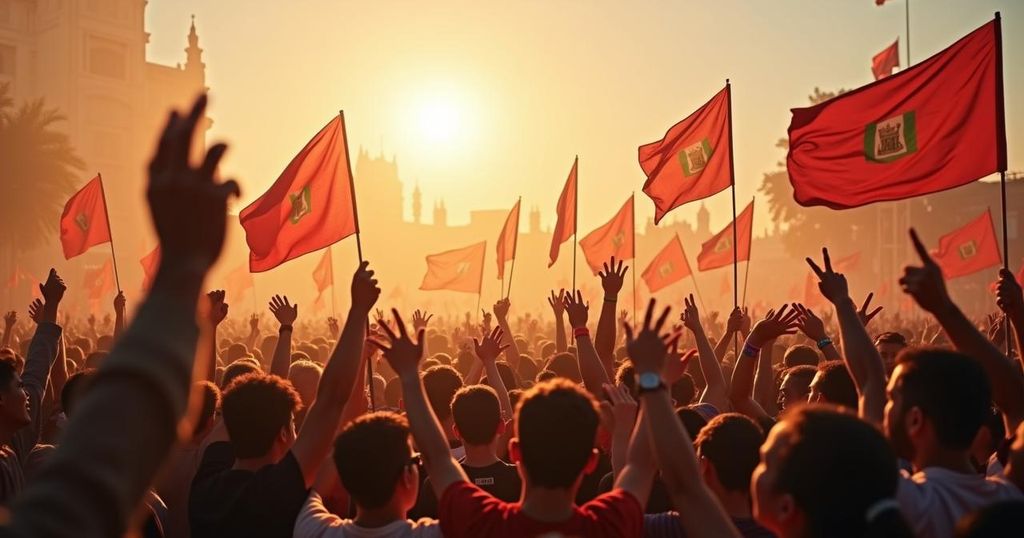The Muslim Brotherhood, after initially supporting the 2011 protests against the Mubarak regime, participated in Egypt’s political process post-Mubarak, leading to significant electoral success through its political arm, the Freedom and Justice Party. However, internal disagreements over presidential ambitions and widespread public dissent culminated in a military coup in 2013, resulting in the arrest of Morsi and a severe crackdown on the Brotherhood, including violent clashes and mass incarcerations of its members.
In January 2011, a nonreligious youth-led protest against the Mubarak regime erupted in Egypt. Hesitantly, the senior leadership of the Muslim Brotherhood endorsed these protests, mobilizing its members to join in the demonstrations. This participation contributed to President Mubarak’s resignation in February, allowing the Muslim Brotherhood to engage openly in political activities. Initially, Brotherhood leaders expressed that they did not intend to seek a legislative majority or field a presidential candidate; however, internal dissent arose when senior member Abdel-Moneim Abul-Fotouh announced his presidential candidacy, leading to his subsequent expulsion from the organization. By late April 2011, the Muslim Brotherhood founded the Freedom and Justice Party and sought official recognition from the Egyptian interim government. The party aimed to operate on Islamic principles while being inclusive of women and Christians. Official recognition was granted by June, enabling the party to participate in the elections. Consequently, the Freedom and Justice Party secured approximately 47 percent of the People’s Assembly seats during the elections from November 2011 to January 2012, while the ultraconservative Nūr Party obtained around 30 percent. The issue of fielding a presidential candidate re-emerged in March 2012 when Khairat al-Shater, a senior businessman affiliated with the Brotherhood, was announced as the nominee. This contradicted previous statements asserting that the Brotherhood would refrain from seeking the presidency. Shater was disqualified due to a prior criminal conviction, prompting the selection of Mohammed Morsi as the party’s candidate instead. Morsi’s electoral victory was met with challenges, including a Supreme Constitutional Court ruling that dissolved the Brotherhood-led People’s Assembly due to procedural violations regarding independent candidate representation. On November 30, 2012, a draft constitution primarily authored by Islamist factions was approved by the Constituent Assembly, leading to a referendum influenced by significant opposition protests. Despite the constitution’s subsequent approval, public dissent against Morsi’s administration grew due to economic and social grievances. This culminated in mass protests on June 30, 2013, prompting an ultimatum from General al-Sisi for Morsi to negotiate with opposition voices or face military intervention. Morsi’s refusal to resign led to his ouster by the military on July 3, 2013, followed by his arrest and suppression of the Muslim Brotherhood. The military’s intervention instigated widespread violence, particularly during security forces’ assaults on Brotherhood supporters, resulting in the deaths of numerous protesters. August 2013 saw intensified crackdowns on the organization, including the massacre of over 1,000 supporters during raids on sit-ins. The Egyptian authorities declared a state of emergency, marking a significant regression to previous authoritarian measures. Following the designation of the Brotherhood as a terrorist organization in late 2013, mass arrests and trials ensued, leading to numerous convictions including death sentences for members of the Brotherhood, with trials often criticized for their lack of due process.
The Muslim Brotherhood is an Islamist political and social movement founded in Egypt in 1928. Historically, it has sought to promote Islamic values in society and governance. The Brotherhood has oscillated between periods of political engagement and suppression, especially under authoritarian regimes. The events of the Arab Spring, particularly in 2011, provided a unique opportunity for the Brotherhood to gain political control in Egypt, which subsequently led to their electoral successes and the eventual ousting of their leader, President Mohammed Morsi.
The trajectory of the Muslim Brotherhood from a participant in the protests against the Mubarak regime to a ruling political entity highlights the complexities and challenges of governance in transitional democracies. Following their electoral successes, the Brotherhood faced significant opposition, leading to a military coup and subsequent violent crackdowns that profoundly affected the organization and its members. The Brotherhood’s history in recent years underscores the delicate balance between political aspirations and the realities of power dynamics within Egyptian society.
Original Source: www.britannica.com






